Behind the News
Behind the News: All the backstories to our major news this week
Published
6 months agoon
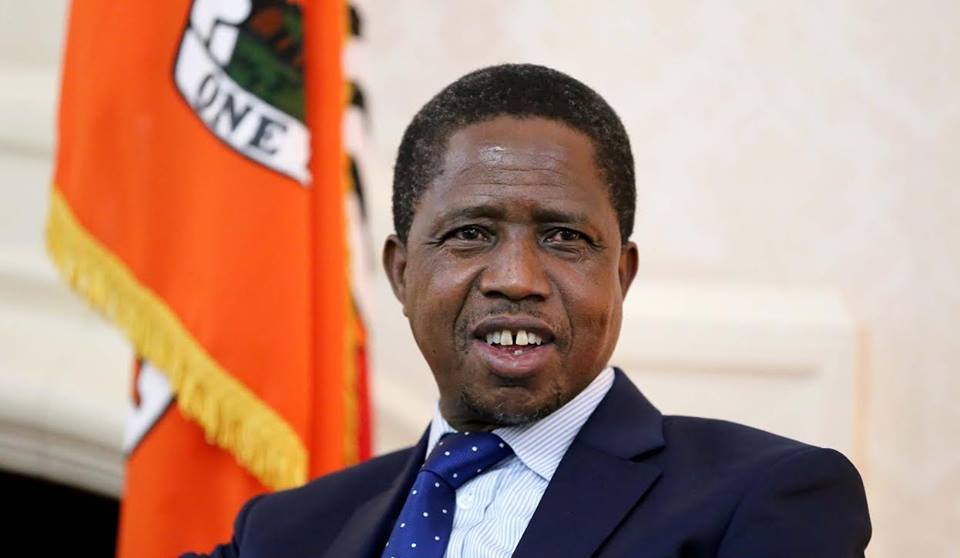
Over the past week, there were lots of important stories from around the African continent, and we served you some of the most topical ones.
Here is a rundown of the backstories to some of the biggest news in Africa that we covered during the week:
Again, Nigeria sets Dec 2024 deadline to end fuel importation
When on Friday, November 24, Mr. Mele Kyari, the Group Managing Director of state-owned oil firm, the Nigerian National Petroleum Company Limited (NNPCL), announced that the country would end the importation of refined petroleum products by December 2024, not many Nigerians were thrilled by the news which came like another decimal in the line of such vows made by previous governments.
Kyari, who was briefing Nigerian lawmakers on steps being taken by the corporation to achieve the deadline, added that all the four refineries in the country located in Port Harcourt, Warri and Kaduna would be operational by then.
At the meeting with the legislators in Abuja, Kyari said his confidence was gotten from the fact that Nigeria produced 1.49 million barrels of oil per day last month, the most in nearly two years, after increasing its output by 60,000 barrels per day, something the country had not achieved in years.
“I can confirm to you that by the end of December this year, we will start the Port Harcourt refinery; early in the first quarter of 2024, we will start the Warri refinery; and by the end of 2024, Kaduna refinery will come into operation.
“We will no longer be talking about fuel importation by the end of 2024. I am very optimistic that this will crystallize,” he enthused.
But the optimism exhibited by Kyari is not sold to majority of Nigerians who have had to live through such promises for over 20 years.
Nigeria, which has one of the largest oil deposits in world, has failed to maximise its potential as none of the publicly owned refineries has worked to capacity for years despite several investments to revive them.
However, there is light at the end of the tunnel as a privately owned refinery built by Africa’s richest man, Aliko Dangote is set to roll out its products in December.
The failure of both the previous and current governments has contributed to the high level of national anticipation surrounding the Dangote refinery which had earlier failed to commence operations despite a funfair launch earlier this year.
When it rains, it pours for ex-President Lungu of Zambia
Former Zambian President, Edgar Lungu was in the eye of the storm during the week in review as the government in power said it was going to engage legal experts to find out the legal implications of his drawing benefits from taxpayers after he had earlier announced that he had retired from active politics before making a u-turn this year.
After he left office, Lungu had announced his retirement from active politics, but according to Chief Government spokesperson, Cornelius Mweetwa, the former president was still collecting retirement benefits which he claimed was a breach of the Zambian constitution.
Lungu’s return to full-time politics and emerging as the leader of the main opposition party, Patriotic Front (PF), was described by Mweetwa as being tantamount to “obtaining by false pretence”.
At a press conference in Lusaka, the spokesman said the central government wanted to “understand whether Lungu committed an offence of obtaining money by false presence which was a criminal offence in the country.”
“Those things are still being studied by the legal experts to establish the way forward because the rule of law is very clear and whoever breaks it must be made accountable,” Mweetwa stated.
The goverment mouthpiece added that the offences were not covered under the presidential immunity because they were committed at the time Lungu had left office, and failure to enforce the law by government was a criminal offence on its part because it swore to protect the Constitution.
The hounding of Lungu and the continuous attacks on the opposition in Zambia which saw the suspension of 18 opposition MPs from the parliament is seen by many political analysts in the country as a clear strategy of silencing dissenting voices, while others fear it could mark the start of a dictatorship by the President Hakainde Hichilema administration.
More trouble for embattled Zambia’s Speaker Mutti
It was another week of trouble for the embattled Speaker of the Zambian National Assembly, Nelly Mutti as a group of female politicians joined their voice to the plethora of attacks on her by accusing her of being used to breach the constitution of the country.
The group, known as the National Management Council in charge of Resource Mobilisation, at a press conference in Lusaka, said Mutti had played into the hands of men in the Parliament and had allowed herself to be manipulated to suit their purpose through unnecessary manouvers.
The leader of the group, Olivia Phiri, who addressed a joint press conference of women in politics, warned Mutti against allowing herself to be used for the wrong purposes.
“Madam Speaker you cannot be used in the night and still want to be used during the day. National Assembly is the last house where laws are made and you can not be used by men to violate the constitution,” Phiri said.
Her warning came amid series of troubles that Mutti has had to face from her fellow MPs which reached a crescendo with the suspension she doled out to 18 opposition lawmakers, 16 from the Patriotic Front and two independent members of parliament.
Phiri also alleged that Mutti was blocking the chances of other women getting such positions in future or being appointed by future presidents.
“What now the Speaker doesn’t understand is that she is blocking other women because they will say women are like this, it will remain in the history like the Chair had explained the history of this country, we have women that fought for the independence of this country”, she said.
The first female Speaker in the history of Zambian politics has also had to face a plethora of criticism, court cases and serial accusations of constitutional breaches, but so far, she is still standing as she has the backing of President Hakainde Hichilema and the ruling United Party for National Development (UPND).
Mutti maybe standing on safe ground for now, but for how long can she hold on?
Bandits kill, abduct Nigerians for failing to pay illegal levies
It was a bloody weekend in the northeastern states of Taraba and Zamfara in Nigeria as heavily armed bandits killed no fewer than 11 people and abducted more than 100.
You may wonder what their crime was?
The failure to pay different kinds of levies amounting to N110 million to the terrorists, including paying to harvest their farm produce and paying a ransom for informing soldiers of the location of the bandits triggered the criminals to carry out the dastardly act.
On Friday, the gang laid siege to Taraba and killed 11 peasant farmers and injured several others, while on Saturday, it was the turn of Zamfara to witness another round of bloody invasion when a notorious bandit kingpin known as Damina (meaning Rainy Season), led his gang to “rain” havoc on helpless residents. By the time he was done, his men had taken over 100 captives while dozens of others were injured in the mindless attack.
Alhaji Muhammad Usman, from one of the affected villages who narrated how the incident happened to journalists, said the bandit leader had earlier imposed N110 million on the communities as harvesting levies, giving them a two-week ultimatum to comply or face the consequences.
“N50 million levy was imposed on our community, while N30 million was imposed on Kwanar Dutsi; N20 million on Sabongari Mahuta, and N10 million on Unguwar Kawo,” he said.
Another resident said Damina attacked them because they could not raise the N50 million he asked them to pay as compensation for informing soldiers of his men’s movements.
“We were trying to gather the money reaching out to people when Damina decided to strike,” he said.
The northeastern part of Nigeria has, over the past 15 years, become the haven of bandit and terrorist activities despite efforts by government at different levels to nip the menace in the bud, including negotiating with and granting them amnesty.
Zamfara has seen repeated and regular attacks from different bandit groups, including the sacking of whole communities, schools and even burning down police stations.
Another feather for Burna Boy as he is confirmed world’s most-followed artiste on Audiomack
It was a good week for Nigerian Afrobeats sensation, Damini Ogulu, the one knows as Burna Boy, when global music streaming giant, Audiomack, announced him as the world’s most-followed artiste on the platform.
According to Audiomack, the Grammy-Awards winning singer hit above five million followers with his stream of songs including the super hit track, “African Giant” which accounted for over a quarter of the following.
The milestone is the first in the history of the platform and they made sure they rolled out the drums to celebrate the “Last Last” crooner.
Audiomack is an on-demand music streaming and audio discovery platform that allows artistes and music content creators to upload limitless music and podcasts for listeners through its mobile apps and website. For the Nigerian star to hit the milestone is a testament to his immense talent and the acceptability of the Afrobeats music genre across the world.
You may like
-
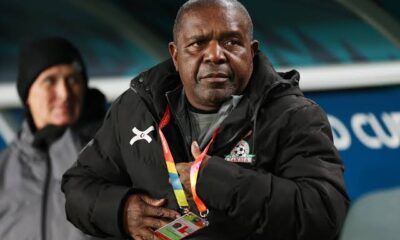

Zambia’s women national team coach face new sexual assault allegation
-


Church in Kasama warns government against misusing Cyber Security Act
-


Zambian opposition New Heritage Party accuses govt of dictatorship
-


Aspiring journalist offers insights on media freedom and information access in Zambia
-


Behind the News: All the backstories to our major news this week
-


Zambia Police denies suspending officers for failing to prevent Lungu’s public ‘tour’
Behind the News
Behind the News: All the backstories to our major news this week
Published
5 days agoon
May 12, 2024
Over the past week, there were lots of important stories from around the African continent, and we served you some of the most topical ones.
Here is a rundown of the backstories to some of the biggest news in Africa that we covered during the week:
1. Stop wailing, they are for your good, Nigerian govt defends Tinubu’s multiple
taxes
Despite the hues and cries of Nigerians over multiple taxes imposed on citizens by the President Bola Tinubu’s administration since coming into office almost a year ago, government officials have continued to defend the so-called reforms.
The latest to do so is Vice President Kashim Shettima who said the multiple taxes are a “necessary evil” aimed at revitalising the economy and not to frustrate Nigerians.
Shettima who spoke at a close-out retreat of the Presidential Fiscal Policy and Tax Reforms Committee set up by Tinubu, said “contrary to speculations in some quarters, the reforms will benefit the country in the long run.”
He stated that fears nursed by citizens over the tax reforms being implemented by the Tinubu administration, are targeted at revitalizing the country’s economy and not to frustrate and further impoverish Nigerians.
“We are not here to frustrate any sector of our economy but to create an administrative system that ensures the benefits of a thriving tax system for all our citizens.
“Our aim remains the revitalisation of revenue generation in Nigeria while sustaining an investment-friendly and globally competitive business environment,” the VP said.
This has been the usual rhetoric by government officials who are not adversely affected by the hardship and hunger being experienced by ordinary people in the past one year of Tinubu’s “bold reforms”.
From the removal of fuel subsidy without provision for ameliorating the expected fallout, to the tight grip on monetary policy, to the multiple taxation which has led to skyrocketing inflation and high cost of living, ordinary Nigerians have been made to bear the brunt of government policies.
Like Senate Chief Whip, Ali Ndume argued, it is inhuman for the government to continue taxing Nigerians without increasing their income.
2. Edgar Lungu still Zambia authorities’ nightmare
Despite being out of office for over two years, former Zambian President, Edgar Lungu remains one of the biggest nightmares of the Hakainde Hichilema administration.
Every move made by Lungu is viewed with suspicion by the government and its agencies and being the smart alec, Lungu has often played them to his advantage.
So it was last week Thursday when the ex-President caused a stir when he decided to take a walk around the Lusaka’s Central Business District which turned into a rowdy scene as traders and residents chanted and cheered his name, while motorists honked in solidarity as he strolled through the area.
Lungu was also warmly welcomed at Lusaka’s biggest trading marketplace, Soweto, as he waved at the traders, and motorist while assessing the cost of living and engaging with traders.
The actions and increased popularity of the former President must have sent the security agencies into panic mode as they did everything to douse the tension, coupled with the fact that the government had since banned such public procession.
There were reports that the National Police had suspended six officers who refused to prevent Lungu from embarking on the march due to its potential of causing a breach of public peace.
But in a swift reaction aimed at further dousing tensions, Police Public Relations Officer, Rae Hamoonga, said contrary to the allegations, no police officer had been suspended on the said allegations.
“Our investigation has revealed that such an incident did not occur, and therefore, no disciplinary action has been taken against any officers in connection with this matter,” Hamoonga said.
The Zambian government has done virtually everything within its powers to clip Lungu’s wings as the country gears up for a general election next year but it seems the more they try, the more the ex-President is becoming more popular.
It is left to be seen the next line of action from the administration to put Edgar Lungu in check.
3. Success has many relations; the intriguing story of Ademola Lookman
Before accepting to Switch allegiance from England to Nigeria, Ademola Lookman had rejected the country of his father three times with the hopes of playing for the Three Lions.
Former Super Eagles coach, Genort Rhor extended invitation to Lookman on two occasions but he turned them down.
Amaju Pinnick, used his position as the then Nigeria Football Federation (NFF) President, to personally court the striker through his parents but he still refused to accept an invitation to play for Nigeria.
In his final rejection of Nigeria in 2018, Lookman, sounding frustrated, said in an interview:
“I’ve not changed my mind on wanting to represent England.”
But after waiting in vain for a call up from England manager, Gareth Southgate, Lookman did the sensible thing by requesting a change of allegiance from FIFA and
February 10, 2022, his request to represent the Nigerian national team was approved by the world football governing body.
Lookman made his debut for Nigeria on March 25, 2022, in their scoreless draw with Ghana as part of the third round of the African section of qualification for the 2022 FIFA World Cup and went on to give a five-star performance at the 2023 Africa Cup of Nations held in the Ivory Coast where he scored three goals for Nigeria.
The rest, as they say, is history as the 25-year-old is now one of the most loved players both in Nigeria and in Italy where he plies his trade with Atalanta.
Such is the great love his fans have for Lookman that an Italian couple named their new born baby after him after leading the modest team into the final of the Europa League.
The Super Eagles forward gained the namesake after he scored a spectacular goal against Olympic Marseille of France in the Europa League semifinal second leg match to take Atalanta to the final.
According to reports from EuroFoot on X, Ademola’s performance was recognised by the couple who live in Palosco, a district in Bergamo where the Italian club is based.
“Somebody named their child after Ademola Lookman following his goal which helped send the Italian club to the Europa League final!” EuroFoot wrote.
The story of Lookman’s metamorphosis can only be compared to a man who has his palm kernel cracked for him by the gods.
4. Idriss Deby: From Army khaki to civilian president
During the week in review, Chadian interim president, Mahamat Idriss Deby, became another military junta leader who easily transformed into a civilian president after he was declared declared winner of the country’s disputed election held on May 6.
The State Electoral Commission of Chad announced that Deby, who succeeded his father who was killed in an army uprising in 2021, had secured an absolute victory in the presidential election, receiving more than 61% of the votes according to provisional figures
Deby was declared winner despite the main opposition candidate claiming victory for himself.
His “victory” at the presidential poll meant that
Chad, like in many African countries, has moved from a military regime back to constitutional governance through democratic elections, but with the same man on the saddle.
Though the election was marred by pockets of violence and discontent by the opposition who cited electoral manipulation, Deby has joined continental leaders who transitioned from military leaders to civilian leaders.
5. Count us out, Nigerian govt denies bribery allegation by Binance CEO
Attempts by the CEO of cryptocurrency exchange giant, Binance, Richard Teng, to rope in some government officials in a $150m bribe aimed settle the ongoing criminal charge filed against the firm has been vehemently denied by the Nigerian government.
Teng, in an article he write for the New York Times, had alleged that unknown government officials had made the bribe demand to Binance officials shortly after they held a meeting with Nigerian lawmakers on January 8.
In the article, Teng accused the individuals whom he failed to identify, of acting on behalf of government officials to demand $150m in cryptocurrency to resolve the tax evasion and money laundering case against the company and its officials.
“They demanded a significant payment in cryptocurrency to be paid in secret within 48 hours to make the issues go away,” Teng wrote in the article.
But in a swift reaction on Wednesday, Nigeria’s Minister of Information and National Orientation, Mohammed Idris, denied the allegations,
describing them as blackmail aimed at tarnishing the image of the country.
“The allegations are baseless and part of a wider attempt by Binance to evade accountability for alleged criminal activities,” Idris said.
“This claim by Binance CEO lacks an iota of substance. It is nothing but a diversionary tactic and an attempted act of blackmail by a company desperate to obfuscate the grievous criminal charges it is facing in Nigeria,” Idris said.
“They lack any evidence and are merely a diversionary tactic employed by Binance to deflect attention from the serious charges it faces in the country.”
Despite Idris’s strong denial of Teng’s allegations, questions are still being asked how one of the detained Binance officials, Nadeem Anjarwalla managed to escape from custody and flee from Nigeria?
Was his escape part of the alleged bribe scheme? Was there an exchange of money that paved the way for Anjarwalla’s escape from Nigeria?
How was he able to secure an alternative passport when his original passport had been seized by the EFCC?
Questions and more questions keep arising from the Binance-gate while Nigerians wait for answers which may never come.
Behind the News
Behind the News: All the backstories to our major news this week
Published
2 weeks agoon
May 5, 2024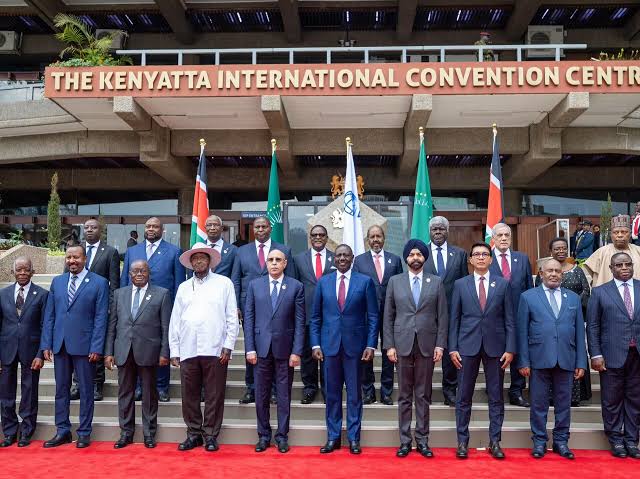
Over the past week, there were many important stories from around the African continent, and we served you some of the most topical ones.
Here is a rundown of the backstories to some of the biggest news stories in Africa that we covered during the week:
Different takes as African leaders spotlight multilateral loans
The call for a reform in the financial instrument of multilateral bodies like the International Monetary Fund (IMF) and the World was at the front burner in the week as African leaders on Monday called for rich countries to commit to record contributions to a low-interest World Bank facility for developing nations. The leaders stressed that most African countries depend on the fund to sponsor development and combat climate change.
Kenya’s President William Ruto told a meeting of African leaders and the World Bank to discuss IDA funding, “call on our partners to meet us at this historic moment of solidarity and respond effectively by increasing their IDA contributions… to at least $120 billion.”
Ruto has been a notable voice in the call. Last year, during a session at the Paris Climate Summit, he called for a new global financial architecture outside the present creditor system which according to him tilts in favour of lenders like the IMF and the World Bank.
“We need a financial consumption tax at a global level that countries like Kenya pay, we do not want anything for free, we will pay more eventually because we have a bigger economy. We want those resources controlled not by IMF and World Bank because IMF and World Bank have the final say…,” Ruto said.
The World Bank has maintained that IDA lends money to 75 poor countries around the world at low-interest rates. More than half of these countries are in Africa. Governments use the money to improve access to healthcare and energy, put money into farms, and build important things like roads.
But Ugandan President, Yoweri Museveni, expressed a fresh perspective to the discourse at the same event as he urged African leaders to verify the true intentions of multilateral lending institutions towards the continent. He asked African leaders to “audit the intentions of the World Bank loans to ensure that they are for prosperity rather than profiteering”. He added: “What loans are we getting as Africa? Is the World Bank giving us loans for private sector-led growth or to be more dependent?”
“Our populations are increasing, but our economies are stunted. The International Development Association (IDA) should tell us why they are funding the modern slavery of Africans, and we should address issues like why Africa is producing what it does not consume and consuming what it does not produce”, the Ugandan leader stated.
Interventions by multilateral bodies have remained controversial in some cycles although the bodies have claimed that poverty reduction is one of their objectives, but some studies have shown that IMF borrower countries experience higher rates of poverty. A 2022 research by Glen Biglaiser and Ronald J. McGauvran which investigated the effects of IMF loan conditions on poverty using a sample of 81 developing countries from 1986 to 2016, found that IMF loan arrangements containing structural reforms contribute to more people getting trapped in the poverty cycle, as the reforms involve deep and comprehensive changes that tend to raise unemployment, lower government revenue, increase costs of basic services, and restructure tax collection, pensions, and social security programmes.
Liberia enacts war crimes court; who should follow?
Liberia’s President Joseph Boakai has signed an executive order to establish a war crimes court. Boakai granted his final approval and congratulated the lawmakers for their effort in the legislation. A special court was eventually ordered to be established to try those who were deemed to be at fault by the Truth and Reconciliation Committee.
Many atrocities, such as rape, massacres, and the use of child soldiers, occurred during the wars that lasted from 1989 to 2003. In their fight against rebels affiliated with the Liberians United for Reconciliation and Democracy (LURD), government forces in Liberia have been accused of war crimes as well as grave violations of human rights, such as the widespread rape of women and girls, the summary execution of numerous civilians, and the looting and burning of entire villages.
Without warning or predetermined protocol, hundreds of civilians were allegedly arbitrarily and forcibly conscripted and deployed to fight on the front lines, frequently with little to no military training. The LURD troops have also been alleged to have committed grave crimes such as rape, forced recruitment of civilians, including child soldiers, and summary killings of suspected government collaborators.
Activists and civil society organizations that have demanded greater justice for crimes committed during the conflicts that claimed the lives of almost 250,000 people have praised the initiative. Some in Liberia are against its development, arguing that it could weaken the amnesty law that was already in place and cause old grievances to resurface. This helped put a stop to the violence.
Most African countries have a shared history of civil wars and internal crises that have made calls for special courts to try war popular in the continent. Nigeria, Rwanda, Ethiopia, Sudan, Congo DR have recorded thousands of deaths of civilians occurring in separate conflicts of armed groups. Some of those killings are also categorized as war crimes and crimes against humanity, with most cases unsolved and consequential agitations in cases for self-determination and secession by aggrieved section of the state, which account for the volatile nature of most African states.
Liberia’s template which has birthed a special war crimes court might be a direction to follow in states with these experiences, first to afford victims closure through justice and likely deterrent for likely war crime offenders but much still lies on the political will of the state to ensure justice despite the special court.
Scrabble for Niger as US accuses Russia over military base incursion
Despite remaining under military reign and retaining consequent pariah status in the international community, West African country, Niger Republic, appears to remain a toast for world powers as the United States and Russia had their latest confrontation over the country during the week. Russian military personnel have reportedly made their way into an American military air base in Niger, according to a senior US defence official cited by Reuters. This move follows the junta in Niger’s decision to expel American personnel.
Until a coup last year, the country had been a vital ally for Washington’s fight against insurgents who had killed hundreds of people and displaced millions more. Mali, Libya, Chad, the Central African Republic, and other nations on the continent have looked to Russia for security cooperation. Russian paramilitary soldiers have now landed in Niger, isolating the United States and compelling its 1,100 military personnel to leave the country for the next few months.
America will lose access to a vital military facility it needs to combat terrorist organizations like ISIS as a result of Russia’s increasing influence in Niger. To strike terrorist bases in the area, intelligence gathered from the U.S. drone base in Niger is crucial. In what global politics observers have labelled a “failed strategy” Cameron Hudson, a former intelligence officer for Africa at the CIA, referring to countries with coup governments in Africa noted that “when all of these countries kicked out the French and turned inward, we then tried to pivot to become the peacemaker in the hopes that we could keep our presence there.” “All of that is not working. We are now out. Russia is now in.”
According to US law, Washington is not allowed to give money to coup regimes like the one in Niger. However, in an attempt to eventually restore military and other financial support, American leaders have made an effort to retain diplomatic ties with those nations, many of which have abundant natural resources.
A few African leaders have praised Moscow’s participation, arguing that in situations where the United States is unable to offer prompt security support, Moscow can. Some have resisted American efforts for reform, arguing that the West has no right to preach democracy in Africa when it ignores comparable problems with its friends elsewhere in the world.
On Africa and long-distance race at the Olympic
Ahead of the 2024 Summer Olympic Games in Paris, France, Athletics Kenya named their six-man team on Wednesday. The team consists of three men and three women, with one reserve on each side. The team is led by Hellen Obiri, Benson Kipruto, and Eliud Kipchoge, the reigning champions. A “killer squad” the team has been called by sports enthusiasts giving the track record of the East African country at long-distance races. Kenyan and regional neighbours Ethiopian athletes have dominated the middle- and long-distance sports since the 1968 Mexico City Olympics. They have also shown a similar level of dominance in international cross-country and road racing competitions.
Benson Kipruto, the winner of the Tokyo Marathon, and Alexander Mutiso, the winner of the London Marathon, are both picked in the final Kenyan Olympic team. Timothy Kiplagat, the runner-up in Tokyo, will be backup in case any of the three chosen athletes are unable to compete. As she travels to Paris in fine form, having set a new women’s only world record last month by winning the London Marathon, Jepchirchir will have an opportunity to defend her championship with the final team list.
Their success has attracted significant attention on a global scale and has been the focus of social, sporting, and even scholarly studies. Genetic predisposition, development of high maximal oxygen consumption as a result of extensive walking and running at an early age, and comparatively high haemoglobin and hematocrit were some of the factors identified by Randall L. Wilber and Yannis Pitsiladis.
Developing a good metabolic “economy/efficiency” based on somatotype and lower limb characteristics, having an advantageous oxidative enzyme profile and skeletal-muscle-fiber composition, living and training at altitude, following a traditional Kenyan/Ethiopian diet, and having the drive to succeed economically are additional factors. However, although the variety of physiological and anatomical explanations appear tenable for the dominance, no definitive advantage has been found through research as athletes from other parts of the world like Asia and North America with little or no features peculiar to East Africa have had considerable success in long-distance also.
East Africa will continue counting its medals with pride while the search continues.
EDITOR’S PICK


Google relaunches Hustle Academy with AI focus to empower African SMBs
Google has relaunched the 2024 cohort of its Hustle Academy, a programme dedicated to accelerating the growth of small and...


Zambia’s women national team coach face new sexual assault allegation
Zambia women national team coach, Bruce Mwape, is facing new allegations of sexual assault and misconduct at the 2023 Women’s...


China’s Hailiang, Shinzoom to establish vehicle battery installations in Morocco
Hailiang and Shinzoom, Chinese car battery makers, will establish two separate operations in Morocco as the country strives to adapt...


Nigeria targets 10,000MW hydropower through sustainable power project
Nigeria’s Minister of Power, Adebayo Adelabu, says the federal government is targeting10,000 megawatts through its Sustainable Power and Irrigation Project...
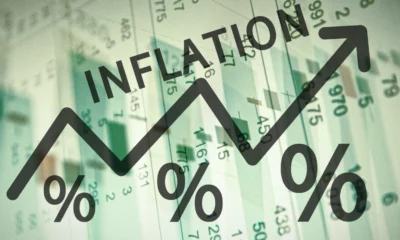

Nigeria’s inflation hits 28-year high of 33.69% in April
Nigeria’s consumer inflation reached a 28-year high of 33.69% in April, up from 33.20% in March, according to statistics agency...
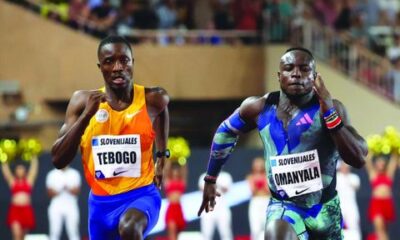

Botswanan Tebogo hits at Kenyan Omanyala over claims of being African sprint king
Botswanan sprint sensation, Letsile Tebogo, has hit back at Kenyan 100m champion, Ferdinand Omanyala, over claims that he is the...


Latin America’s biggest payment processor PayRetailers expands into Africa
Latin America’s biggest payment processor, PayRetailers, has announced its expansion into Africa with coverage across four countries, Rwanda, Zambia, Uganda,...


Legendary American music icon Stevie Wonder becomes full Ghanaian citizen
Legendary American singer and songwriter, Stevie Wonder, is now officially a Ghanaian citizen after he took an oath of allegiance...


Zambian opposition New Heritage Party accuses govt of dictatorship
One of Zambian opposition parties, the New Heritage Party (NHP), has accused the government of dictatorship after the police insisted...


Nigeria: President Tinubu unveils 21 major initiatives
Nigeria’s President Bola Tinubu has unveiled 21 major policy initiatives of his administration after the Federal Executive Council (FEC) meeting...
Trending
-

 VenturesNow2 days ago
VenturesNow2 days agoShell investigates smoke at Gbaran oil plant in Nigeria
-

 Tech2 days ago
Tech2 days agoLatin America’s biggest payment processor PayRetailers expands into Africa
-

 VenturesNow22 hours ago
VenturesNow22 hours agoNigeria’s inflation hits 28-year high of 33.69% in April
-

 Metro2 days ago
Metro2 days agoNigeria: President Tinubu unveils 21 major initiatives


